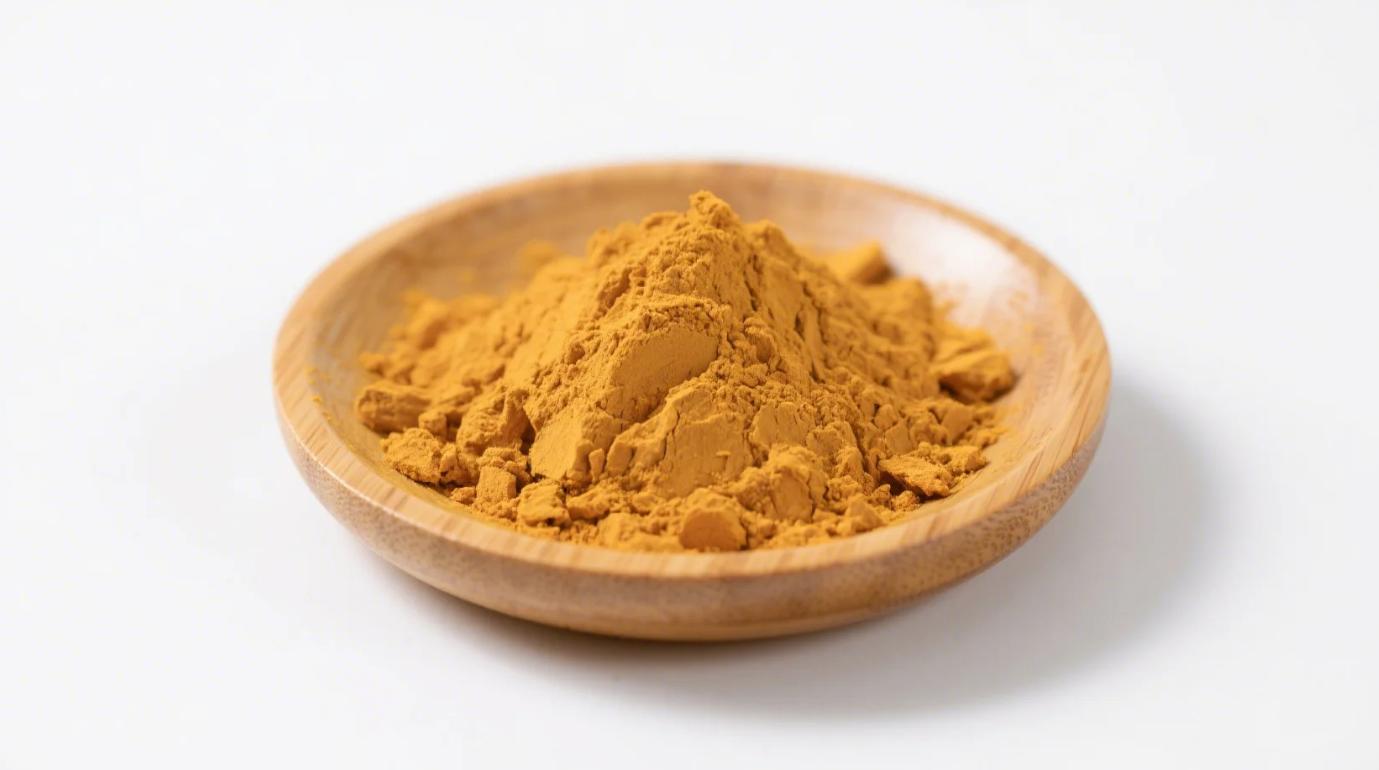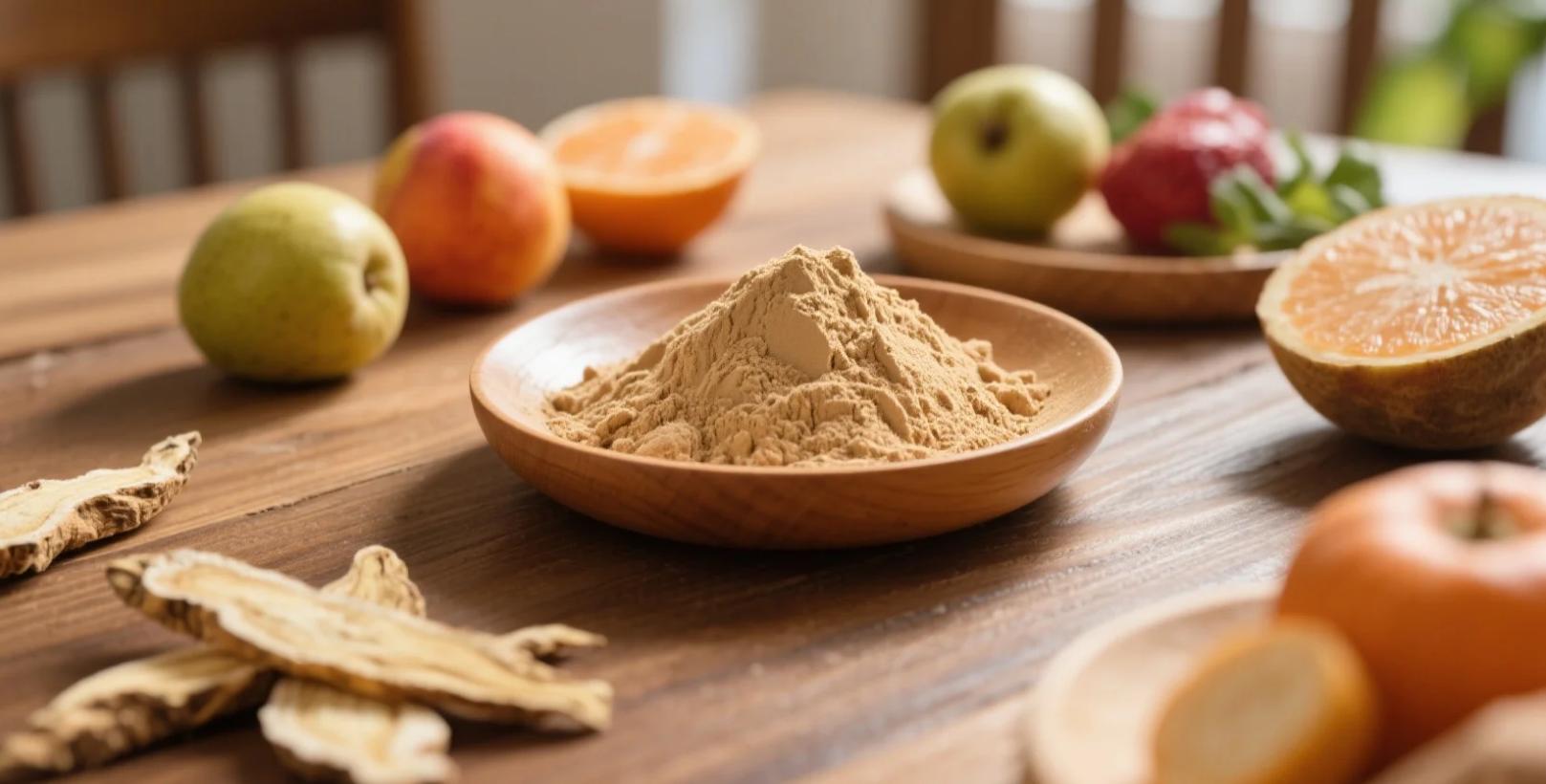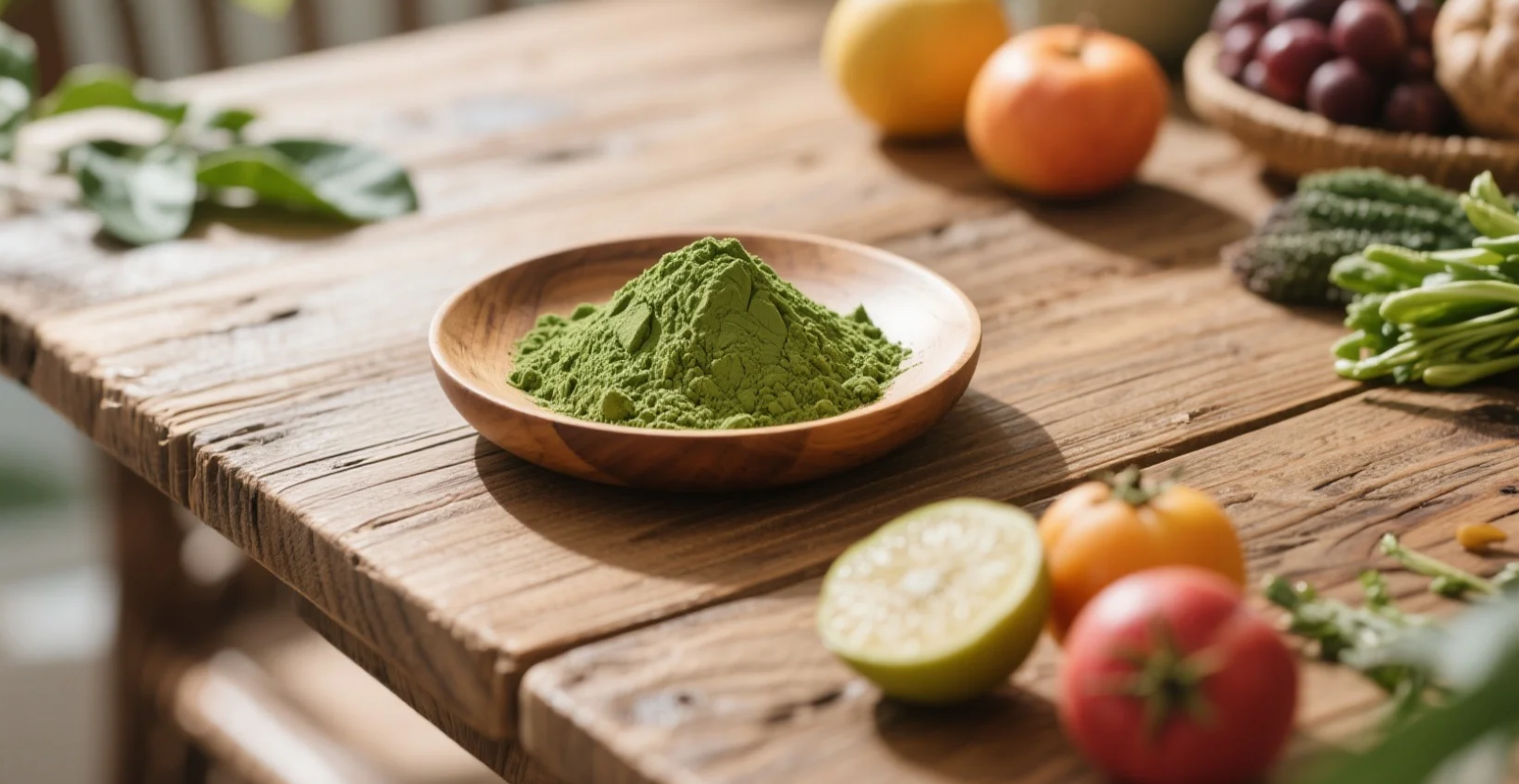Table of Contents
Turmeric, the golden spice celebrated for its anti-inflammatory and antioxidant prowess, is a staple in wellness routines. However, despite the benefits of organic turmeric powder and organic turmeric extract powder, certain individuals should approach this vibrant root with caution—or avoid it altogether. Let’s uncover who’s at risk, why, and how to navigate turmeric safely.
Organic Turmeric Powder vs. Extract Powder: Key Differences
| Factor | Organic Turmeric Powder | Organic Turmeric Extract Powder |
|---|---|---|
| Curcumin Content | 3–5% curcuminoids | 20–95% standardized curcumin |
| Bioavailability | Low (requires black pepper/fat) | High (often pre-formulated with piperine) |
| Best For | Cooking, mild support | Targeted anti-inflammatory needs |
| Risk Profile | Lower (gentle dosing) | Higher (potent concentration) |
6 Groups Who Should Avoid or Limit Turmeric
1. Pregnant and Breastfeeding Women
Why Avoid:
- Uterine Stimulation: High doses of curcumin may stimulate uterine contractions, increasing miscarriage risk.
- Breastfeeding Concerns: Limited safety data on curcumin transfer through breast milk.
- Safe Alternative*: Small culinary amounts (e.g., in curry) are generally acceptable.
2. People with Gallbladder Disease
Conditions: Gallstones, bile duct obstruction, cholecystitis.
Why Avoid: Turmeric stimulates bile production, which can force gallstones into narrow ducts, causing pain or emergencies.
Higher Risk With: Organic turmeric extract powder (stronger cholagogue effect).
3. Those on Blood-Thinning Medications
Medications: Warfarin, aspirin, clopidogrel.
Why Avoid: Curcumin’s antiplatelet properties may amplify bleeding risk. Studies show it can prolong INR levels in warfarin users.
Safe Use: Consult a doctor; monitor blood clotting parameters closely if used.
4. Iron-Deficiency Anemia Patients
Why Avoid: Curcumin binds to iron in the gut, reducing absorption by up to 40%. This worsens anemia in those already deficient.
Tip: Take turmeric 2–3 hours apart from iron-rich meals or supplements.
5. Pre- and Post-Surgery Patients
Why Avoid: Turmeric’s blood-thinning and anti-inflammatory effects may increase bleeding risk or delay healing.
Protocol: Stop turmeric 2 weeks before surgery and resume only with doctor approval.
6. Gastrointestinal Disorders
Conditions: GERD, ulcers, acid reflux.
Why Avoid: Turmeric can irritate the stomach lining, triggering heartburn or nausea, especially in high doses.
Alternative: Slippery elm or marshmallow root for soothing inflammation.
Why “Organic” Turmeric Reduces Risks
Non-organic turmeric is often contaminated with:
- Lead Chromate: A toxic dye used to enhance color in conventional turmeric.
- Pesticides: Residues like chlorpyrifos, linked to neurological damage.
- Heavy Metals: Arsenic and cadmium from polluted soil.
Certified organic turmeric ensures:
✅ No synthetic additives or heavy metals
✅ Higher curcumin content (organic farming boosts soil nutrients)
✅ Ethical sourcing (supports regenerative agriculture)
Safe Use Guidelines for Eligible Individuals
- Start Low: Begin with ¼ tsp organic turmeric powder or 250mg extract daily.
- Pair with Black Pepper: Enhances curcumin absorption by 2,000%.
- Cycle Usage: Take for 6 weeks, then pause for 1–2 weeks to prevent iron depletion.
- Monitor Symptoms: Stop if you experience dizziness, bruising, or stomach pain.
FAQs: Turmeric Risks Unpacked
Q: Can turmeric cause kidney stones?
A: Yes, in susceptible individuals. Turmeric’s oxalates may contribute to calcium oxalate stones. Stay hydrated and limit high-oxalate foods (spinach, almonds).
Q: Is turmeric safe for diabetics?
A: Generally yes, but monitor blood sugar closely—curcumin can enhance hypoglycemic medications.
Q: Can I apply turmeric topically if I can’t ingest it?
A: Yes! Mix organic turmeric powder with honey for a soothing face mask (avoid if allergic).
Q: Does turmeric interact with antidepressants?
A: Potentially. Curcumin may interfere with SSRIs (e.g., Prozac) by affecting serotonin levels. Consult a psychiatrist.
Turmeric Alternatives for High-Risk Groups
| Condition | Safe Alternative | Benefit |
|---|---|---|
| Gallbladder Issues | Dandelion root tea | Gentle bile support without stimulation |
| Blood Thinners | Ginger (anti-inflammatory) | No blood-thinning interaction |
| Iron Deficiency | Cinnamon | Enhances iron absorption |
| GERD | Deglycyrrhizinated licorice (DGL) | Soothes stomach lining |
The Verdict
While organic turmeric powder and extract powder offer transformative health benefits, they’re not universally safe. Pregnant women, gallbladder patients, those on blood thinners, and iron-deficient individuals should avoid or strictly moderate use. For others, mindful dosing, organic quality, and medical guidance are key to unlocking turmeric’s golden potential without harm.
Choose Wisely, Thrive Safely
Opt for certified organic turmeric products to minimize risks and maximize benefits. Whether you’re stirring powder into soups or taking extracts for joint support, let knowledge—and nature—guide your wellness journey.
Nourish with care, heal with intention.
Related Products
Organic Turmeric Powder
Organic turmeric powder delivers whole-root nutrition with ≥3% curcuminoids for culinary and…
Organic Turmeric Extract Powder
Premium organic turmeric extract standardized to 95% curcuminoids. Available in standard and…



